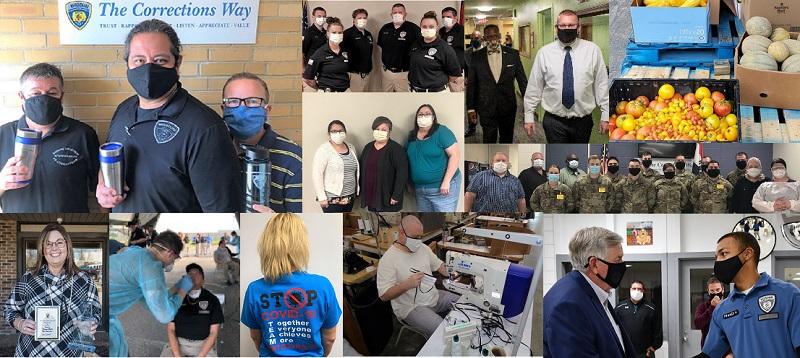
Watch the video »
A lot of words have been used to describe 2020. Unprecedented. Uncertain. Unstable. For corrections professionals, there’s another: unmatched. In the face of a public health crisis, as well as the day-to-day-dangers the work presents, corrections staff on the front lines have shown exemplary dedication and courage.
Here are some of the things we accomplished in 2020:
1. We built up staff paychecks.

In January, the biggest raise in Missouri Department of Corrections history went into effect, thanks to a new pay plan signed into law in 2019. Pay increases ranged from 3% to 13% across the department for all non-executive staff. A 1% pay increase continues for every two years of service.
2. We got gubernatorial shoutouts.
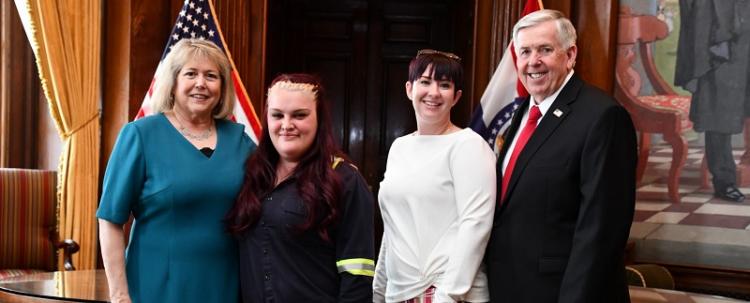
Two graduates of the ASPIRE MO women’s entrepreneurship program earned special recognition from Governor Mike Parson during his January 2020 State of the State Address. More than a year after release from prison, Nigaila Gibbs and Emily Kirchhoff hold down good jobs while pursuing entrepreneurial ambitions. These Missourians represent just two of the thousands of successes resulting from the work of corrections staff and community partners. Offering more recognition, in September, Governor Parson visited Chillicothe Correctional Center and Western Missouri Correctional Center to thank staff for their service during this trying time.
3. We grew community treatment and made it better.
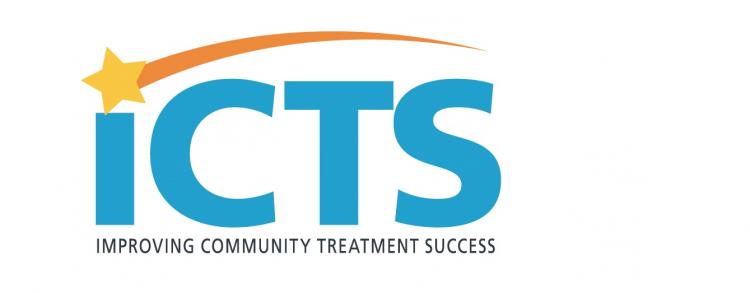
A multi-agency program to help prevent (re)incarceration among probation and parole clients with behavioral health concerns expanded to Cole, Pettis, Phelps, Pulaski and St. Francois counties this year, supplementing programs in Boone, Buchanan, Butler, Greene and Polk counties. Improving Community Treatment Success (ICTS) helped more than 600 people overcome barriers in 2020 and has served more than 1,000 Missourians since its 2018 launch, with an 89% success rate.
4. We connected kids and dads.
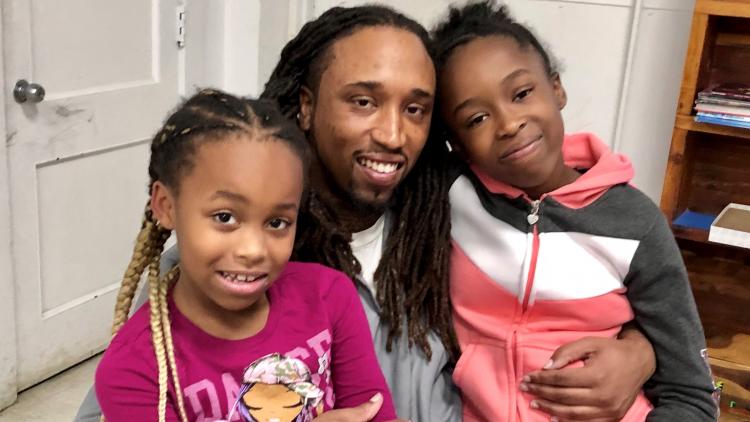
A group of Missouri kids spent the day with their dads at Boonville Correctional Center — making crafts, having snacks, playing games and running around outside — as part of the Empowering Dads Embracing Fatherhood program. Kids and dads built memories and strengthened their bonds just days before the declaration of a global pandemic and the shutdown of visiting in state prisons.
5. We got support from Miss U.S.A.
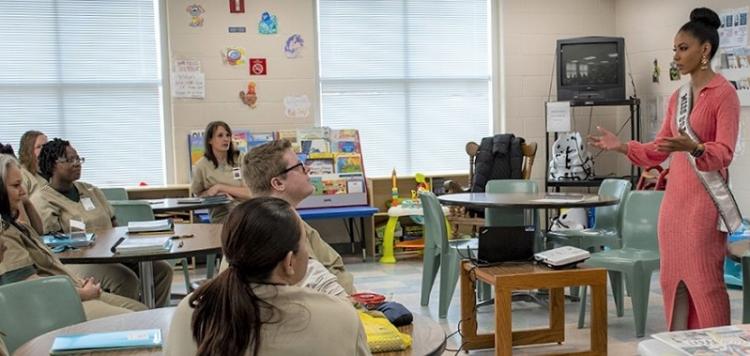
Miss U.S.A. Cheslie Kryst visited Vandalia to meet Women’s Eastern Reception, Diagnostic and Correctional Center staff and participants in Connections to Success, for which Kryst, an attorney and criminal justice reform advocate, is a major champion. After speaking at Kansas City Reentry Center CTS graduation last fall, Kryst returned the first week in March to help inspire incarcerated women and to meet with reentry professionals.
6. We took a proactive approach to viral containment.
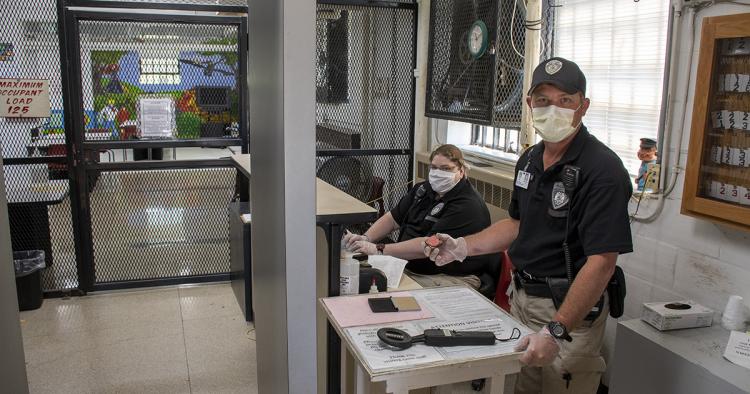
Long before the first case of COVID-19 was found in a MODOC facility, Division of Adult Institutions staff, working like a well-oiled machine, launched an aggressive COVID-19 prevention, screening and containment strategy — based on limiting the number of people with whom each staff member and each offender has contact and buoyed by rigorous cleaning regimens. MODOC was among the first corrections departments to implement these measures, helping to avoid the large-scale, facility-wide outbreaks that hit prisons in other states.
7. MVE became the MVP.
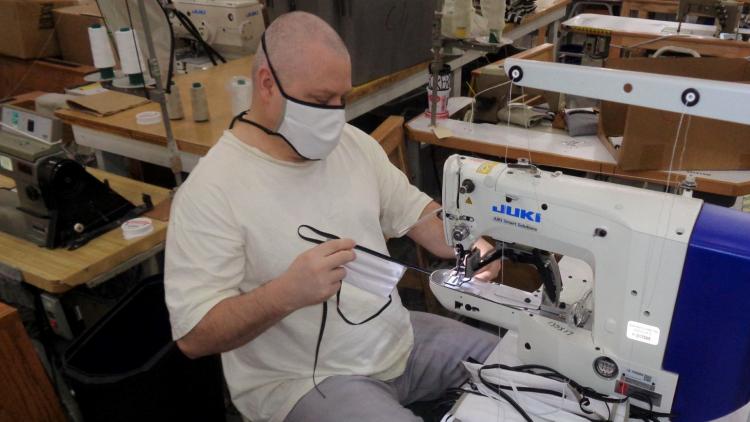
When COVID-19 hit Missouri, state agencies and citizens faced a serious shortage of safety supplies. Missouri Vocational Enterprises (MVE) stepped up and started producing what was needed to help keep the state safe. Sewing factories have made more than 700,000 high-quality face covers and 14,000 protective gowns, while the chemical factory added hand sanitizer to its production of hospital-grade cleaning supplies, producing 16,000 gallon jugs and 18,000 four-ounce bottles.
8. We launched the most aggressive COVID-19 testing strategy of any department of corrections in the United States.

With the goal of identifying and isolating COVID-19 cases and stopping the spread, the Missouri Department of Corrections developed the nation’s most thorough, systematic and comprehensive approach to COVID-19 testing in corrections, earning national recognition. Since March, MODOC has conducted more than 76,000 COVID-19 tests among staff and offenders. This process helped to isolate asymptomatic and pre-symptomatic cases, better protecting Missourians living and working in MODOC facilities.
9. We kept our spirits up.
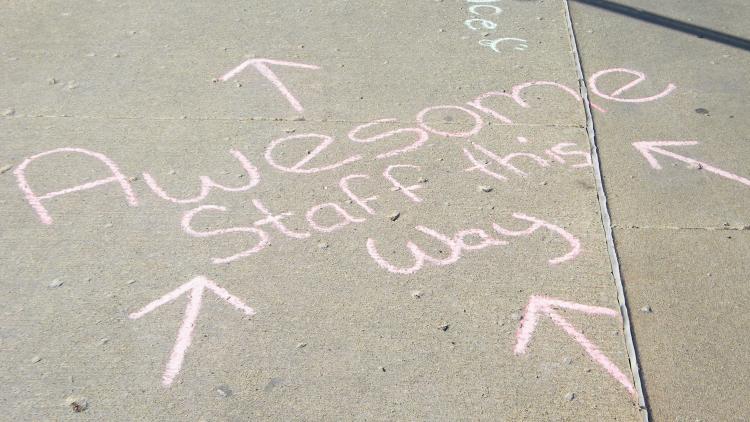
As any corrections team member can tell you, operating as an essential worker during a pandemic can be overwhelming. But corrections is made up of people who not only find courage in crisis but also lift each other up. Every small gesture counts. Staff have worked voluntary overtime to take exhausted team members’ shifts; have covered facility sidewalks with motivational chalk-art messages; have made COVID Testing Day team T-shirts; and have sent extra staff, supplies, support, and, when needed, dinner to facilities having a hard time.
10. We transformed supervision with drive-thrus, webcams and a lot of ingenuity.
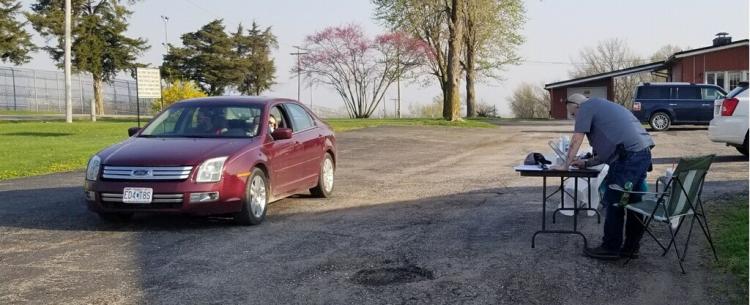
Community supervision doesn’t stop for a pandemic. In the face of the public health crisis, the trailblazing Division of Probation and Parole shifted gears and found innovative client-supervision solutions: video conferencing, phone calls, drive-up parking-lot meetings, home visits, office visits and more. A remote-work committee then fine-tuned and rolled out new policies and procedures, improving the effectiveness and efficiency of all operations — the ultimate silver lining.
11. We revamped staff training.
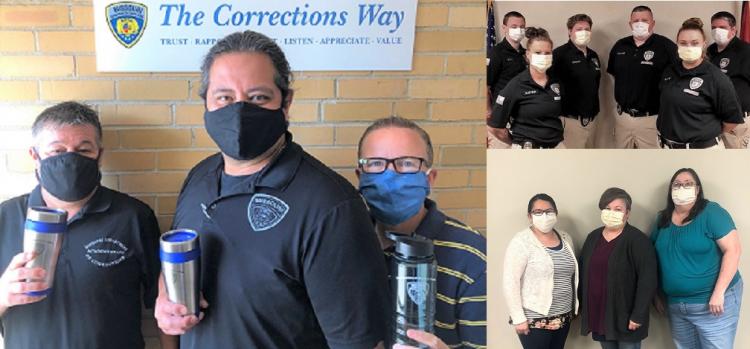
A new blended learning environment for staff basic training combines online components with in-person courses. The model eases scheduling complications for new staff, reduces training costs and, during a global pandemic, helps decrease health risks by reducing the number and size of in-person training sessions. Revision of the curriculum also helped boost training quality.
12. We showed some love to fellow front-liners
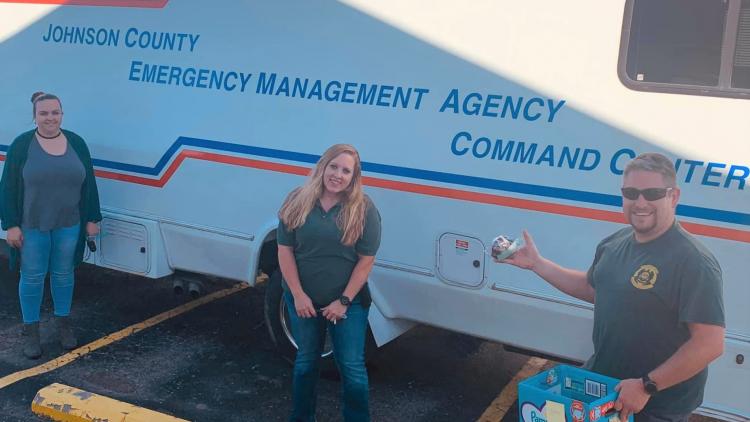
Throughout the year, staff and offenders recognized the hard work done by health care workers, law enforcement and other first responders. Probation and Parole teams prepared grab-and-go snacks for law enforcement. Facility staff and offender groups raised funds to deliver lunch to area hospital workers. Restorative Justice teams worked tirelessly to make thousands of face covers, surgical caps and other gear for people working in nursing homes, heath care, child care and the military.
13. We fed Missouri.
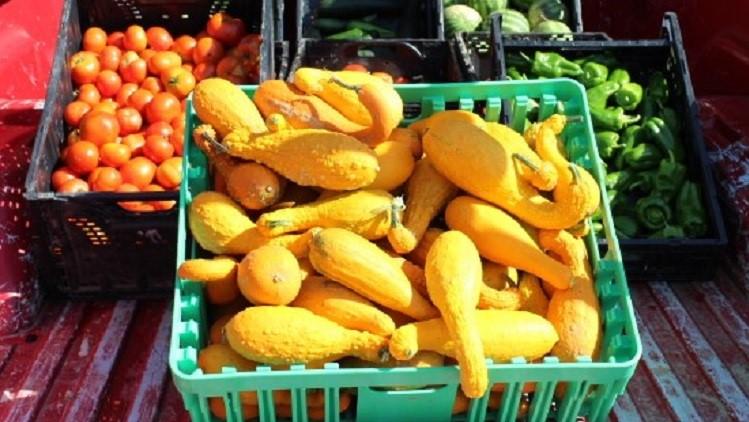
The pandemic has taken its toll on countless families’ finances, and Missourians facing food insecurity continue to need our help. Corrections stepped up this year. Restorative Justice gardens in Missouri prisons produced more than 36 tons of fresh fruits and vegetables for donation to local food banks, while staff held donation drives for nonperishable foods.
14. We educated our future workforce.

Educators overcame obstacles to prepare incarcerated Missourians to reenter the workforce. In Fiscal Year 2020, MODOC Academic Education team provided adult basic education to 8,116 offenders, with a 96.5% pass rate on the HiSET. Career and Tech Education served 1,279 offenders, who earned 1,583 professional certificates, and one automotive mechanics class even completed construction of a hot rod built from scrap parts, which was presented at a regional car show. Nearly 600 offenders enrolled in post-secondary education.
15. We became a national role model for reentry.
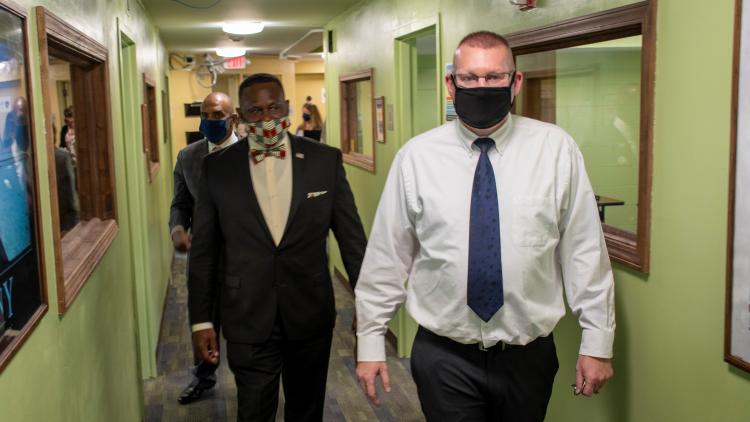
In October, Pastor Tony Lowden, executive director of the Federal Interagency Council on Crime Prevention and Improving Reentry, spent three days touring Missouri reentry programs and learning how we drive reentry success, with the goal of replicating our approach nationwide. His conclusion: “Missouri is getting it right.”
16. We gave back.
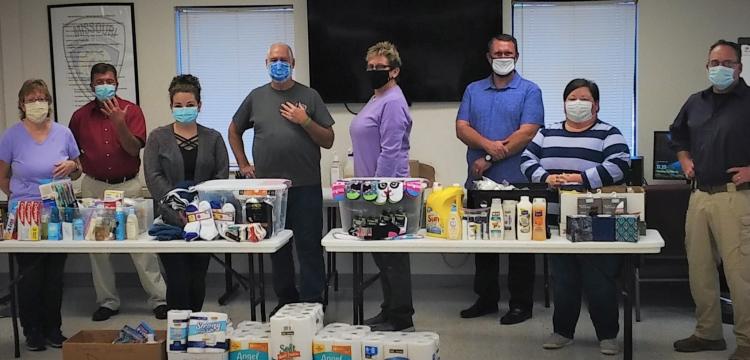
Many fundraising and awareness-raising events throughout the state were canceled this year, but that didn’t stop corrections. From taking the Polar Plunge for Special Olympics, to giving supplies to domestic violence shelters, to “adopting” families during the holidays, corrections staff and offenders have continued to support charitable organizations by giving time, resources and funds to Missouri communities.
17. We built a better work environment.
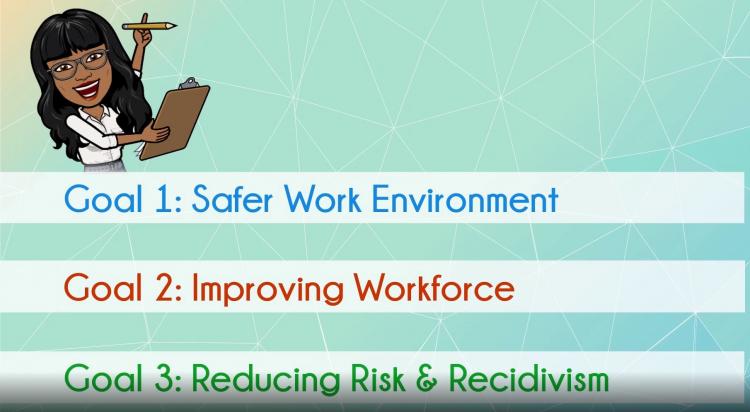
By the end of 2020, the department had completed 54 strategic initiatives designed to improve our workforce, make our work environment safer, and reduce risk and recidivism in the offender population. Recent highlights include mental health first aid certification, hostage negotiation training, and safety upgrades in probation and parole facilities and offices.
18. We adopted new COVID-killing technologies.
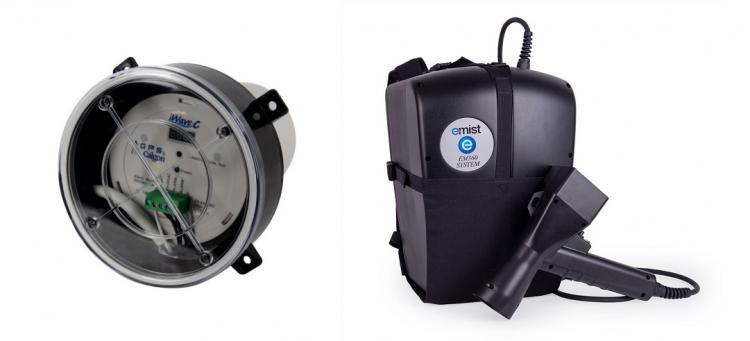
We took the fight against COVID-19 to the next level by implementing COVID-destroying technological innovations that kill the virus in the air, kill the virus on surfaces and detect the virus in wastewater. MODOC partnered with the Missouri Department of Natural Resources and the University of Missouri to monitor wastewater. By December, the department also had procured 1,468 COVID-killing ionization generators for installation in all building air flow systems, plus 40 electrostatic disinfectant sprayers to kill viruses on surfaces.
19. We prioritized staff safety.
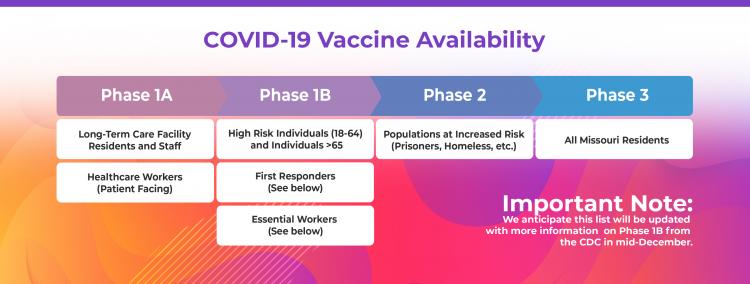
At the end of 2020, COVID-19 vaccines were approved for emergency use and were shipped to vaccination locations throughout the United States. Each state has developed a three-phase vaccine distribution plan, with priority groups targeted for vaccination in each phase. Missouri is one of only 11 states in the U.S. to include corrections staff in Phase 1.
20. We showed up.
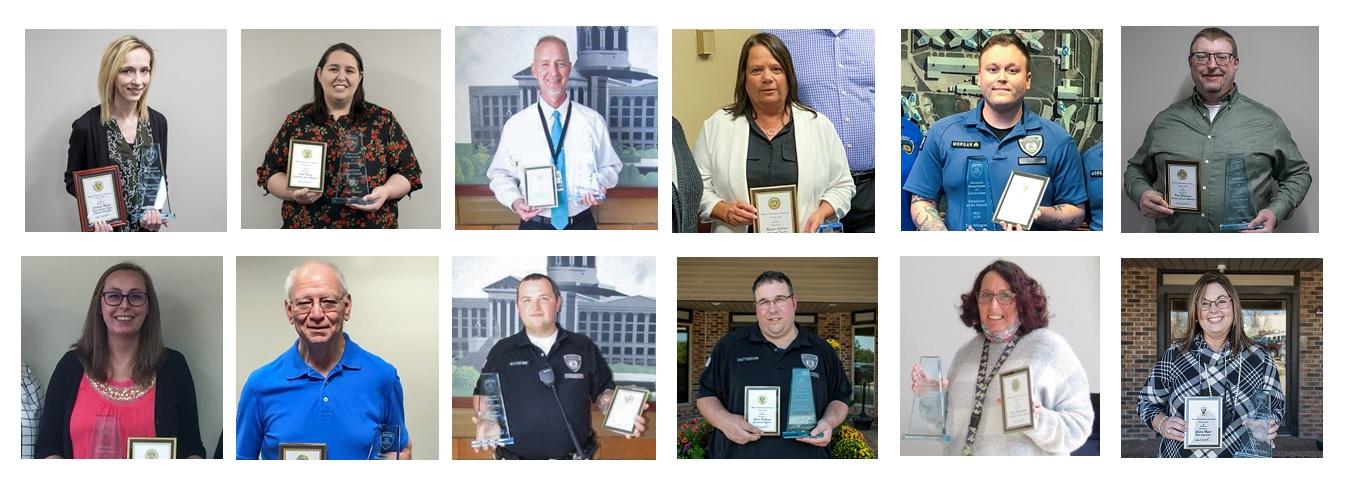
The most important thing corrections staff did this year: being there. When facing operations overhauls, health threats, staffing challenges, offender unrest and ongoing uncertainty, it takes a special type of person to not only come to work but also bring their A game. Simply showing up every day is an act of heroism.
